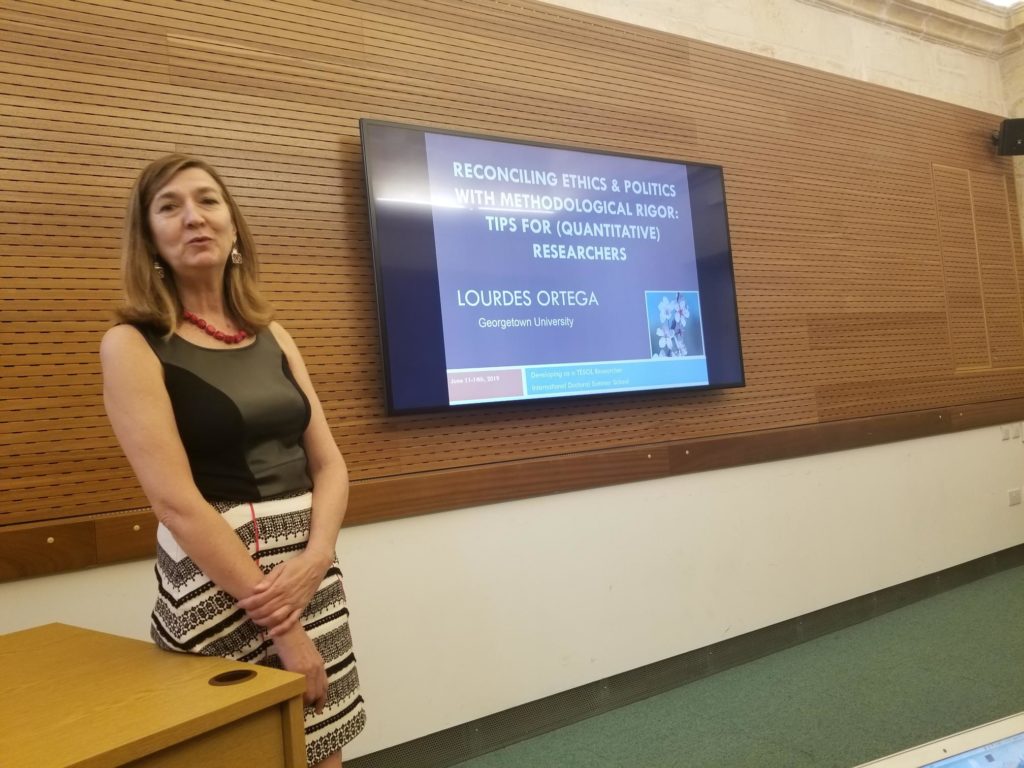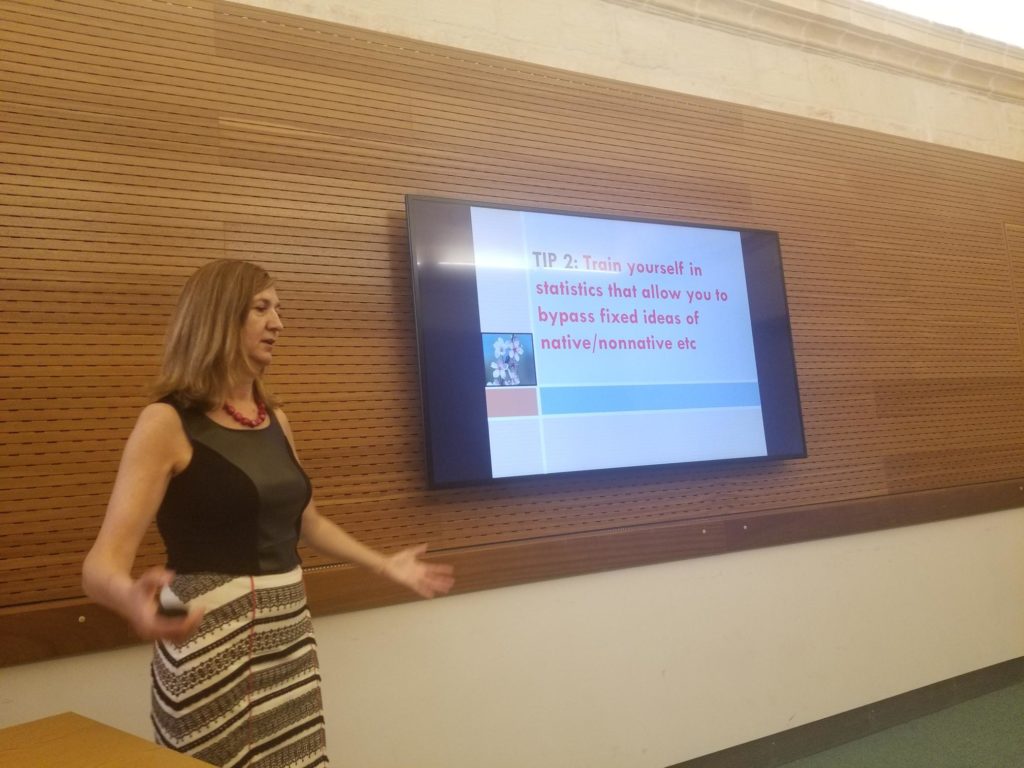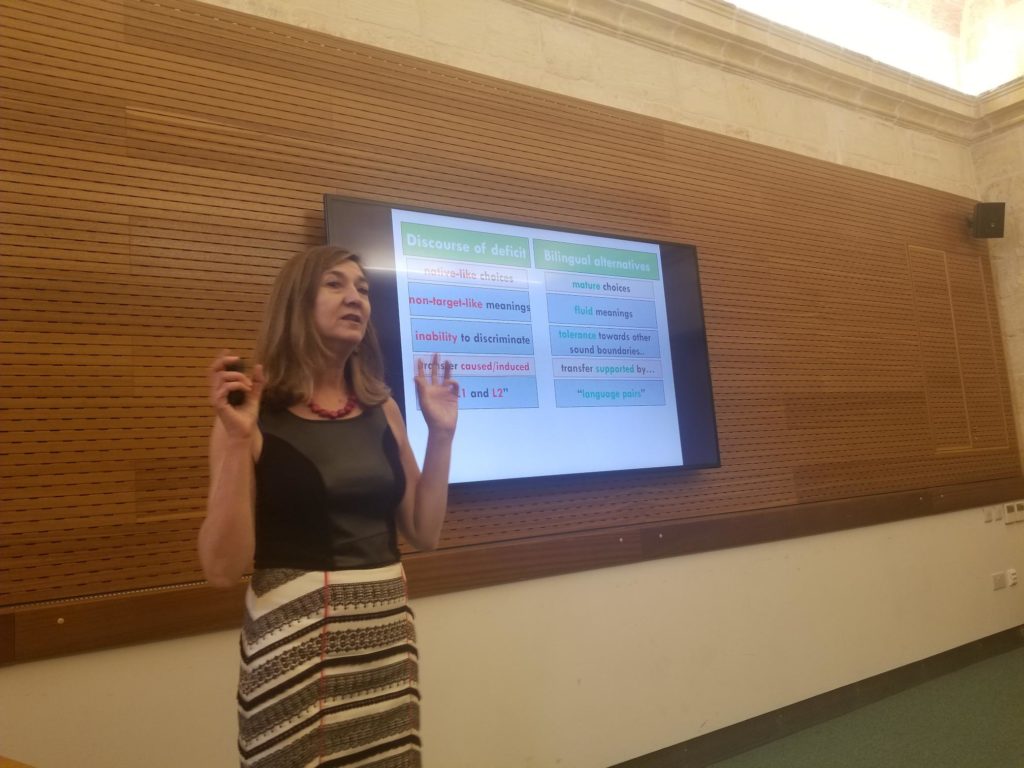
From Ortega, L. (2017) New CALL-SLA Research Interfaces for the 21st Century: Towards Equitable Multilingualism. Calico Journal, 34.3, 285–316.
The majority of the world is multilingual, but inequitably multilingual, and much of the world is also technologized, but inequitably so. Thus, researchers in the fields of computer-assisted language learning (CALL) and second language acquisition (SLA) would profit from considering multilingualism and social justice when envisioning new CALL-SLA interfaces for the future.
I remain convinced that “in the ultimate analysis, it is not the methods or the epistemologies [or the theories] that justify the legitimacy and quality of human research, but the moral-political purposes that guide sustained research efforts” (Ortega, 2005, p. 438). The need to incorporate ethics and axiology in the study of language learning seems all the more acute in our present world, where human solidarity and respect for human diversity, including linguistic diversity, is under siege, creating serious vulnerabilities for the goal of multilingualism and the lives of many multilinguals. Echoingbut also widening Chun’s (2016) call for an ecological CALL in the post-2000s era, the overarching question that I have submitted to orient CALL–SLA research interfaces for the 21st century is: What technologies, teaching paradigms, views of language, and principal uses of computers can nurture multilingualism and digital literacies for all, not just for the privileged?


